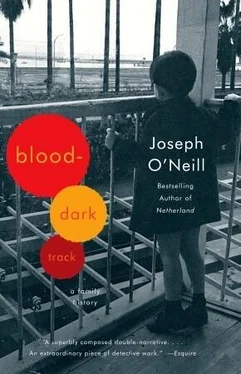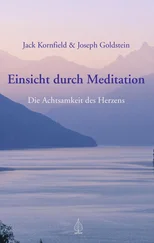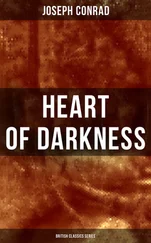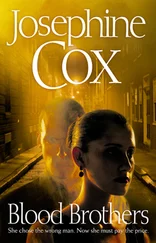So the Turks didn’t like the Syrians? I said. I could not get used to this tag.
‘They greatly disliked them,’ Wright said. ‘The feeling was probably mutual, particularly after the Varlik Vergisi .’ Seeing that I needed further explanation, Wright continued: ‘The Varlik Vergisi was a wealth tax which came into force in late 1942 or early 1943, and, quite frankly, was used to destroy the minorities. The Turkish authorities assessed the wealth of Jews and Christians in sums that were often many times greater than their actual wealth; and if they reckoned you were dodging payment, you were liable to be sent to break rocks on roads in eastern Turkey. It was a disgraceful episode.’ Wright reached over and pulled out some papers from the pile of documentation that he’d prepared for my visit. ‘Here, I think you’d better have a look at this.’
It was a report he’d written in January 1944 on the minorities in Içel, the province in which Mersin and Tarsus are situated. Sir Denis Wright stood up energetically (‘Right-ho, I’ll leave you to it’) and wandered out into the garden in his slippers, corduroys, and checked cotton shirt with cuff-links. He exchanged a few words with Iona — the niece of the first Prime Minister of Northern Ireland, the ultra-unionist Lord Craigavon — then headed off to the hut in a distant corner of the garden where he liked to retreat on a summer’s afternoon to rest and work.
Wright’s report identified three categories of minorities: Muslim, Other Non-Christian, and Christian. The Muslims consisted of a large Arabic-speaking population of around 25,000 Syrian or Arab Alaouites who lived in their own quarter in Mersin; about 400 families of Sunnite Syrians, including the Gandour family; and an assortment of Greek-speaking Cretan Turks, Kurds and Circassians, each of whose numbers were limited to no more than a few hundred. The Other Non-Christians were Jews (sixty-four families in Mersin, of which thirty-seven spoke Ladino and twenty-seven Arabic) and Gypsies. The Christians consisted mainly of Greeks, Armenians and Syrians, nearly all of whom spoke Arabic and French and Turkish. The Syrians, Wright wrote,
are disliked, mistrusted and envied by the Turks because of their origin, their religion and their wealth. With a shiny veneer of European manners, if not culture, acquired in Beirut, their way of life is more European than Turkish, they have no feelings of loyalty to Turkey and do little to conceal their contempt for the Turk. The flashiness of their behaviour in public and their group instinct (no doubt the result of persecution in the past) irritate the Turks, with whom they make no attempt to mix or, it seems to the outsider, to understand. They generally send their children to school at Beirut or to Robert College, Istanbul.
They are very conscious of the precariousness of their position here, and, given the chance, most of them would choose to return to Syria. Their present-day claim to be house-to-house, if anti-French, is probably not very deep, and their gushing friendliness for the British in Mersin is primarily because they see in the British Consulate their only protection and hope against their Turkish ‘oppressors’, though it is true that they do genuinely find the British more sympathetic than the Turks.
Allegations that many of these people were pro-Axis in the early days of the war should not be taken too seriously, and it should be borne in mind that any reports about their activities emanating from Turkish sources are likely to be coloured. They are not interested in politics, though some of them shewed a passing interest in the recent Lebanon crisis, and their only political concern at the moment is that Turkey shall remain out of the war. Self-interest and financial profit are their only gods. The Turks refer to them as ‘Hristian’ or ‘Arap’ with a contemptuous ring in their voices.
My first reaction on reading this was dismay at its portrayal of the ‘Syrian’ community — to which, after all, my family belonged. Had we really been (and might we still be) such a dreadful, flashy, self-involved crowd? I thought guiltily that in all the summers I’d spent in Turkey I’d only stepped into a Muslim house on maybe three or four occasions, and then only fleetingly; I thought about my grandmother shouting at the servants, about the motorboats and the private beaches and our tiny social circle. No, I could not deny our clannishness or snobbery, or that in the old days my grandparents’ few good Muslim friends were drawn mainly from the families of mayors, state governors, university chancellors and landowners (that said, employés of any religion were beyond the pale). I did not doubt that, as a group, we could be gratingly materialistic and lacking in the sophistication to which we pretended; but if the Syrians’ position was as precarious and marginal as Wright described, then surely for them the financial was political, and making money and spending it with a certain degree of ostentation was a vital form of cultural assertion? Besides, I had no problem with business culture; I knew something from my work as a lawyer about the dreams and exertions that may attach to bills of lading and letters of credit and exportation permits and finance facilities, about the necessity to deal and exploit and broke, to extract, by hook or by crook, a return from the rough world. The so-called Syrians, my mother’s people, worked in a very rough world indeed; a terrible climate, lethal diseases, an undeveloped economy, an alien host society: all had to be overcome. Everything was difficult, and everything — the houses they lived in, the port they operated, the churches they attended, Mersin itself — had to be wrought from nothing. Perhaps Freya Stark had sensed this when she wrote from the Toros Hotel, in April 1954, ‘There is something very touching in these little hotels, trying to be modern with such difficulties. The traveller is apt to feel cross and tired and wants things different, but when one thinks what a huge effort it is to get as far as they do, one feels very gentle towards them.’ Then again, even Stark was sufficiently anti-Levantine to eventually describe Mersin as a ‘squalidly rich little town’.
A political curiosity of the report — which, knowing Wright as I did, I took to be fundamentally reliable — was that I had never myself heard the Christians in Mersin talk of themselves or, for that matter, of the Kurds, as an oppressed minority. The Kurdish situation very rarely came up in discussion, even though the war in south-east Turkey had caused around 30,000 deaths since 1984; certainly, there was little sign of sympathy for the insurgent Kurds or for the cause of an autonomous Kurdistan. The fact was that, aside from the odd reference by those in my grandmother’s generation to les Turques , I had barely heard any talk of the ethnic majority as a group distinct from ourselves; and indeed my cousins, the first generation to have been educated at Turkish schools and to speak Turkish as a first language, would have found bizarre and hurtful the notion that they were not Turkish. What else could they be? No native Mersiner, as far as I was aware, thought of himself as Syrian or Lebanese; Aleppo and Beirut and Tripoli and Damascus simply did not figure as homelands in our communal imagination. Go back to Syria and Lebanon? And do what?
Wright’s report continued with an analysis of the ‘Turkish Attitude towards the Minorities’:
The Turk has an instinctive dislike and distrust of all minorities. If, unlike nearby Adana, Mersin has never been the scene of wholesale massacres, the reason is partly that Armenians, the chief victims of the various Adana massacres, have never been found in large numbers in Mersin, and partly that Mersin has never been a predominantly Turkish town. Syrian influence and sea traffic have played an important part in making Mersin a far more European town than, for instance, Adana.
Читать дальше
Конец ознакомительного отрывка
Купить книгу












